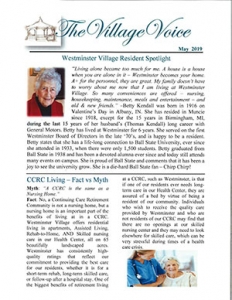Chaplain’s Corner: CXXIII
“Getting Down to Business with Prayer”
Say a prayer and do your job. Those were the two things on Captain David Cronin’s mind as he tried to steer a seriously damaged Boeing 747 toward an emergency landing.
On February 24, 1989, United Airlines Flight 811 departed Honolulu on its way to New Zealand. When the jumbo jet had reached an altitude of approximately 22,000 feet, the forward cargo door suddenly blew open. Tragically, nine passengers were immediately sucked out of the gaping hole that was torn into the starboard side of the plane.
The two right engines were disabled by flying debris. Flight 811 was now at least 100 miles from land and in deep trouble. One of my friends was the navigator on that flight and when he walked down and saw the damage he was doubtful they would make it back to Honolulu.
Journalist William Diehl describes what Captain Cronin did next: “To compensate for the lack of thrust from the right two engines, he struggled to hold the control column steady with his hands while using his feet to put pressure on the control floor rudder to stabilize the plane. His stickiest problem, however, was deciding how fast to fly. He slowed the plane as close to the stall speed as possible to keep the air rushing over the plane from further widening the hole in the fuselage. Because the hole had changed the aerodynamics of the huge craft, the usual data regarding stall speed was no longer relevant. The pilot had to use his best judgment.
Furthermore, since the plane had just taken off with 300,000 pounds of fuel for the long flight, it was too heavy to land without collapsing the landing gear.
That’s when he encountered a new problem. The wing flaps that are essential to decelerating a large jet were not working properly. Instead of landing at a normal speed of 170 mph, he was going to hit the runway at around 195mph. At that moment the jet would weigh 610,000 pounds, well above Boeing’s recommended maximum stress load of 564,000 pounds.
Nevertheless, Captain Cronin made one of the smoothest landings the rest of the crew could remember, amid the cheers of the passengers. Airline experts called the landing miraculous.
At the time of the flight, the captain was 50 years old. Industry authorities had been clinging to the notion that older pilots would probably perform poorly in a crisis. Instead, Cronin essentially wrote the book on how to handle a jumbo jet decompression-and he did so while experiencing one.
A few days after the incident, an interviewer asked Captain Cronin what thoughts went through his mind when disaster struck. He answered, “I said a prayer for my passengers….and then got back to business.
SAY A PRAYER AND DO YOUR JOB.
Many of us feel anxious about the mystery of discerning God’s will for our lives. What are we supposed to be doing today?
Diehl suggests that the greatest gift Captain Cronin gave his passengers was “his experience and good judgement…the critical issue was this: Was he competent enough as a pilot to bring a damaged plane in safely? He was trained to do a job. Now he needed to do that job well.
Do you yearn to serve God today by serving those he has placed in your life? Then pray for those in your life. Entrust to God’s care the residents and staff here at Westminster Village you encounter daily.
mAnd be Competent. Excel at loving your neighbor. Calm the person who is having a bad day. Say a prayer and do your job as a disciple of Jesus Christ. Say a prayer and do your job. The odds are very high you’ll end up doing exactly what God is calling you to do today.
Faithfully,
Ron Naylor, Chaplain











